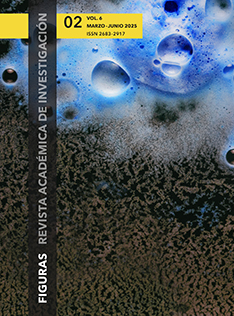Focalization of government benefits in the State of Mexico: an approach based on the National Survey of Household Income and Expenditure (ENIGH) 2018-2020
DOI:
https://doi.org/10.22201/fesa.26832917e.2025.6.2.401Keywords:
Social Programs, poverty, households and expenditures, ENIGHAbstract
The COVID-19 pandemic negatively impacted the income of broad sectors of the population, especially those who were most vulnerable, such as informal workers and traders. In the State of Mexico -where poverty increased by 7 percentage points between 2018 and 2020, affecting 8.3 million people- the implementation of social programs based on monetary transfers was initiated, a topic that gained special relevance. In this context, this article aims to evaluate the importance of government benefits on the current income of the households in the State of Mexico, and analyze the coverage and equity in the focalization of social programs. For this purpose, data from the National Survey of Household Income and Expenditure (ENIGH) 2018 and 2020 were used, considering contextual and sociodemographic variables related to the household headship. The results indicate a limited coverage of the social programs in households facing the greatest economic difficulties.Downloads
References
Alfageme, Augusta y Marielle Del Valle. 2009. “Análisis de focalización de la política social.” Revista Estudios Económicos, 18: 61-90. https://ideas.repec.org/a/rbp/esteco/ree-18-03.html
Coneval. 2021. “Nota técnica sobre el ingreso en el espacio del bienestar económica, 2018-2020.” Coneval. https://www.coneval.org.mx/Medicion/MP/Documents/MMP_2018_2020/Notas_pobreza_2020/Nota_tecnica_bienestar_economico_2018_2020.pdf
Candia, José Miguel. 1998. “Exclusión y pobreza. La focalización de las políticas sociales.” Nueva Sociedad, no. 156: 116-126. https://repositorio.21.edu.ar/bitstream/handle/ues21/12839/Exclusión%20y%20pobreza.%20La%20focalizacion%20de%20las%20pol%C3%ADticas%20sociales.pdf?sequence=1&isAllowed=y
Consejo de Investigación y Evaluación de la Política Social (CIEPS) del Estado de México y Universidad Iberoamericana. 2020. ENCOVID-19 EDOMEX. https://encovid.ibero.mx/index.php/proyectos-relacionados/
Cornia, Giovanni Andrea y Frances Stewart. 2003. “Subsidios alimentarios y dos errores de focalización. Comercio Exterior 53, no. 6: 563-573.
Guadarrama Sánchez, Gloria Jovita. 2024. “Vulnerabilidad y asistencia social. Los programas asistenciales en el Estado de México (2014-2021).” Korpus 21 3, no. 12: 235-266. https://doi.org/10.22136/korpus212023132
Instituto Nacional de Estadística y Geografía (INEGI). 2018. “Encuesta Nacional de Ingresos y Gastos de los Hogares 2018 (ENIGH)”. INEGI. https://www.inegi.org.mx/programas/enigh/nc/2018/
Instituto Nacional de Estadística y Geografía (INEGI). 2020. “Encuesta Nacional de Ingresos y Gastos de los Hogares 2020 (ENIGH)”. INEGI. https://www.inegi.org.mx/programas/enigh/nc/2020/
Hernández Franco, Daniel, Mónica Orozco Corona y Sirenia Vázquez Báez. 2008. "Métodos de focalización en la política social en México: Un estudio comparativo.” Economía mexicana. Nueva época 17, no. 1: 101-128. http://www.scielo.org.mx/scielo.php?script=sci_arttext&pid=S1665-20452008000100004&lng=es&tlng=es.
Lacabana, Miguel Ángel y Thais Maingón. 1997. “La focalización: políticas sociales “estructuralmente ajustadas”." Cuadernos del Cendes 14, no. 34 (enero-abril):193-218. https://www.semanticscholar.org/paper/La-focalizaci%C3%B3n%3A-pol%C3%ADticas-sociales-ajustadas%22-Lacabana-Maingon/d6bb38af9f335302db23edc594a23a4068f29308
Lara Caballero, Manuel y Julieta Martínez Cuero. 2019. “La focalización de la población potencial en las políticas públicas. Un reto para el análisis territorial.” En José de la Rosa Rodríguez, Sofia García Yagüe y Alma Patricia de León Calderón coordinadores. Políticas públicas con perspectiva territorial, 203-240. México: UAM-Lerma. https://www.geografia.unam.mx/geoigg/biblioteca/archivos/eferia/20210813120825.pdf
Ocampo, José Antonio. 2008. “Las concepciones de la política social: universalismo versus focalización.” Nueva Sociedad, no. 215 (mayo-junio): 36-61. https://static.nuso.org/media/articles/downloads/3521_1.pdf
Racyzinski, Dagmar. 1995. "Focalización de Programas Sociales. Lecciones de la Experiencia Chilena." En Crisostómo Pizarro, Dagmar Raczynski y Joaquín Vial (eds.). Políticas Económicas y Sociales en el Chile democrático, 217-255. Santiago : CIEPLAN-UNICEF. https://www.cieplan.org/wp-content/uploads/2019/12/pol-econom-y-soc-chile-demo_Capitulo_10_compressed.pdf
Downloads
-
Abstract 398
-
PDF (Spanish) 128
-
Visor XML (Spanish) 64
-
ePub (Spanish) 50
Published
Issue
Section
License
Copyright (c) 2025 Julieta Martínez-Cuero, Jorge Miguel García-González

This work is licensed under a Creative Commons Attribution-NonCommercial-ShareAlike 4.0 International License.
All works published in FIGURAS REVISTA ACADÉMICA DE INVESTIGACIÓN are subject to an Attribution-NonCommercial-ShareAlike 4.0 International license. Authors are owners of their articles and can republish them in other media, provided that they communicate it to the editors and indicate the texts were originally published in FIGURAS REVISTA ACADÉMICA DE INVESTIGACIÓN






















